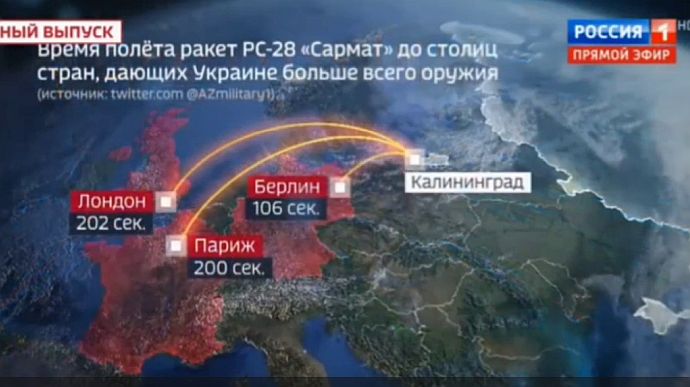The Rhodus Story
On a sunny spring day of 2022 someone transferred me 10 Ethereums. That was a lot of money. With this money I could do something big
So, I decided to do something interesting 🧵
On a sunny spring day of 2022 someone transferred me 10 Ethereums. That was a lot of money. With this money I could do something big
So, I decided to do something interesting 🧵

Not long before that, I wandered into an article «Germany and Czechia help Russia to build ballistic missiles Sarmat and Sineva with the nuclear warheads» (2017). A case study on the Krasmash missile producing plant, it posed some questions that analysts seldom ask:
🤔
🤔

What was the article about?
The Krasnoyarsk Machine Building Plant (Krasmash) is one of two key intercontinental ballistic missile manufacturers in Russia. Krasmash produces and maintains the liquid-propellant missiles such as the ICBM Sarmat and SLBM Bulava
The Krasnoyarsk Machine Building Plant (Krasmash) is one of two key intercontinental ballistic missile manufacturers in Russia. Krasmash produces and maintains the liquid-propellant missiles such as the ICBM Sarmat and SLBM Bulava

In 2016, a Krasnoyarsk regional TV channel "Yenisei" broadcasted a program on the modernization of Krasmash
It had some interesting visuals.
It had some interesting visuals.

That was a VLC 4000 ATC + C1 vertical lathe produced by a Czech company TDZ Turn
Source: (p.1). tdz-turn.com/contentBox/dow…

Source: (p.1). tdz-turn.com/contentBox/dow…

How did this European machine end up on Krasmash?
That was surprisingly easy to track. Back then, TDZ Turn listed a Krasnoyarsk-based company KR Prom (КР Пром) as their official distributor in Russia
TDZ Turn -> KR Prom -> Krasmash
*there is more documental evidence available
That was surprisingly easy to track. Back then, TDZ Turn listed a Krasnoyarsk-based company KR Prom (КР Пром) as their official distributor in Russia
TDZ Turn -> KR Prom -> Krasmash
*there is more documental evidence available

What did I learn from this article?
1. The most highly classified & strategically important military producers in Russia operate with Western machine tools
2. I can investigate this based on the most mundane publicly available sources
3. And track the entire supply chain
1. The most highly classified & strategically important military producers in Russia operate with Western machine tools
2. I can investigate this based on the most mundane publicly available sources
3. And track the entire supply chain
What did I *not* learn from this article?
1. How import dependent is the Russian military industry?
2. Who is it import dependent upon?
3. Why?
1. How import dependent is the Russian military industry?
2. Who is it import dependent upon?
3. Why?
As I could not find the answers in literature, I had to produce them myself. If I do not have a credible picture of how Russia produces weaponry, I will construct it bit by a bit. As I cannot do it alone, I will build a team
And that's how the @rhodusinc was born
And that's how the @rhodusinc was born

@rhodusinc Some of our materials will be posted on our @Rhodusinc Twitter page. This is a short thread with selected visuals on a Russian strategic missiles producer - the Votkinsk Plant
https://twitter.com/rhodusinc/status/1706317705765065210
Paywalled materials will be posted in our newsletter. Here we outline the case study of Votkinsk Plant in more detail
rhodus.substack.com/p/how-to-make-…
rhodus.substack.com/p/how-to-make-…
It is your donations that made this investigation possible. If you want to support our work, you can:
1. Subscribe to our newsletter
2. Make a wire transfer
BENEFICIARY: Rhodus Inc.
ACCOUNT NUMBER: 9801141480
ROUTING NUMBER: 084106768
BENEFICIARY ADDRESS: 447 Broadway, 2nd Floor, 197 New York, NY 10013
BANK NAME: Evolve Bank & Trust
BANK ADDRESS: 6000 Poplar Ave, Suite 300 Memphis, TN 38119
1. Subscribe to our newsletter
2. Make a wire transfer
BENEFICIARY: Rhodus Inc.
ACCOUNT NUMBER: 9801141480
ROUTING NUMBER: 084106768
BENEFICIARY ADDRESS: 447 Broadway, 2nd Floor, 197 New York, NY 10013
BANK NAME: Evolve Bank & Trust
BANK ADDRESS: 6000 Poplar Ave, Suite 300 Memphis, TN 38119
• • •
Missing some Tweet in this thread? You can try to
force a refresh






